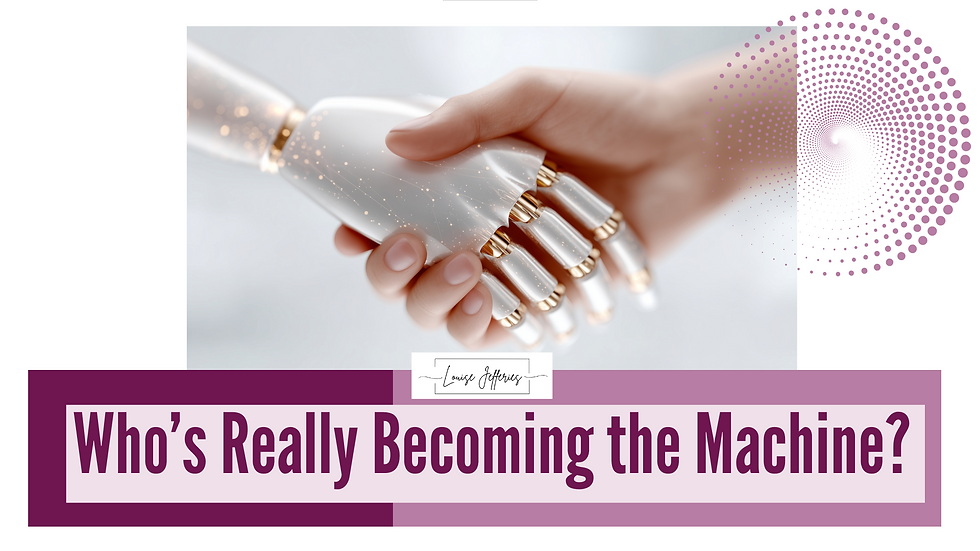What looked Like a wall was actually a door
- jefferiesart
- Aug 10, 2025
- 3 min read

A couple of weeks ago I attended the #HBA Bavaria launch event, hosted by Bristol-Myers Squibb in Munich. It was an energising evening filled with thoughtful conversation around sustainable high performance for women in life sciences.
One moment in particular stuck with me.
Annette Jean Heinzer-Hiemer introduced her Corporate Avatar Framework for Mental Fitness and High Performance, which outlines four core intelligences that women need to thrive in the corporate world:
IQ – Cognitive Performance and Clarity
EQ – Emotional Intelligence
CQ – Cultural Intelligence
CCQ – Corporate Culture Intelligence
She asked us to reflect:
“Which one of these areas feels like your weakest link?”
For me, the answer was clear: CCQ.
Apart for 18 months within the NHS, I’ve never worked inside a large corporation. So as someone who’s spent nearly my entire professional life self-employed, I don’t have insider knowledge of corporate politics, matrixed hierarchies, or unspoken rules about how information travels through departments.
And it turns out I wasn’t alone. CCQ was the most commonly cited ‘weakness’ in the room.
But here’s the thing I’ve come to understand, especially as a coach working with introverted, non-native English speaking scientists in the pharmaceutical and biotech industries:
Sometimes, what looks like a weakness is actually your superpower.
Seeing the System from the Outside
Because I’ve never been steeped in corporate systems, I’m not conditioned by them. I can see their patterns, their constraints, and the silent assumptions they generate, without being bound by them.
That’s exactly why I’m able to help my clients.
Most of the brilliant scientists I work with think their main barrier is English. They come to me looking for language training, hoping that my 25 years experience teaching English within Pharma and Biotech will help them learn better vocabulary and get clearer understanding on the grammar they need to help them speak up in meetings. Which of course it does.
But here' the thing... confidence rarely comes from grammar. It comes from mindset. From self-permission. And often, from someone outside the system saying,
“Wait, who says it has to be this way?”
I help my clients spot what they’ve started to accept as immovable. They’ll say things like,
“Credit is given to the people to talk the loudest ”
“I’m not the sort of person who can boast about my work”
“If I make mistakes or lose words, they’ll question my competence.”
To which I gently ask:
“Is that a wall… or a door you’ve never been told you’re allowed to knock on?”
And when they start knocking; carefully, quietly, and in their own way… something shifts. They begin speaking up. Asking questions. Making suggestions. Not because they’ve become more extroverted, but because they’ve become more themselves.
This Is Where Coaching Begins
The truth is, I don’t have corporate culture intelligence in the traditional sense. But what I do have is just as valuable: the ability to challenge assumptions that go unspoken. To help clients decode the social rules of their workplace without losing their authenticity. To move from silence to clarity, from fear to calm confidence.
If you’re an introverted scientist working in your second language and feeling invisible… Or if you're a team lead wondering why a brilliant team member never speaks up in meetings…
I can help.
Book a short, no-pressure consultation call and let’s explore what working together could look like. Not to “fix” you, but to help you see the door you haven’t yet knocked on... yet.



Comments